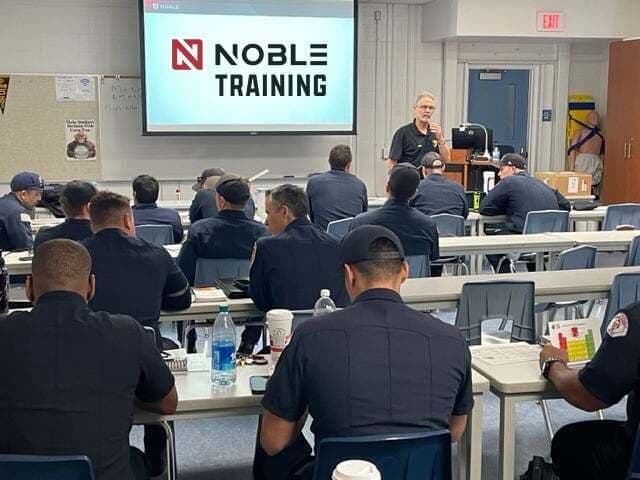By Brett Bigger, Founder of BatteryIQ, and Sr. Trainer, NOBLE
Executive Summary
The rapid integration of electric vehicle (EV) charging infrastructure in parking garages—especially those beneath or attached to mixed-use developments—presents new safety, operational, and security risks. While advancing sustainability goals, the introduction of high-energy lithium-ion battery systems into densely populated, often enclosed spaces presents unique safety challenges.
This paper examines the hazmat, safety, and security risks tied to EV-related incidents, including uncontained thermal runaway events, compromised emergency egress, and the exploitation of EV fires in terrorist attacks. The goal is to inform developers, emergency managers, security planners, and municipal decision-makers of the critical risks and mitigation strategies needed before construction or retrofitting.
To read more, download the white paper now:

About BatteryIQ
BatteryIQ is a comprehensive training course offered by NOBLE to those who are likely to respond to a potential battery emergency. The course provides students with a simplified system to understand, identify, respond to, and mitigate lithium-ion battery incidents, covering a range of scenarios from cellphones, electric scooters, and bikes to electric vehicle fires and energy storage system failures. Students are provided with Battery Response Guides that allow them to quickly, effectively, and efficiently categorize battery-related emergencies based on battery type and failure stage. These categories then guide students in determining potential hazards, PPE, recommended equipment, and correct emergency response tactics when arriving at the scene of a Li-ion battery emergency.
NOBLE’s Training & Technical Services team provides expert-led training, technical services, and sustainment solutions to support military, federal, state, local, and critical infrastructure missions.
We support those who protect us all by ensuring personnel, systems, and equipment are aligned for operational readiness—every time.


